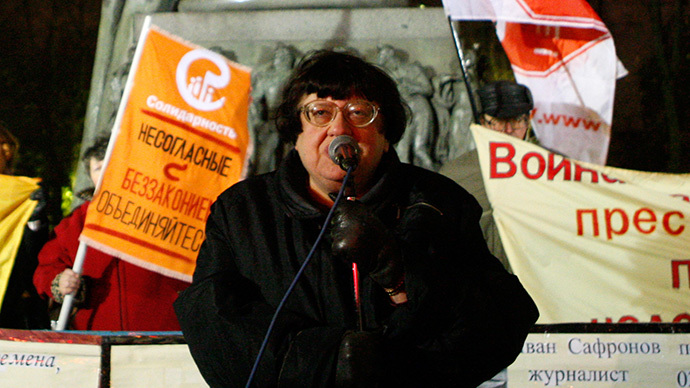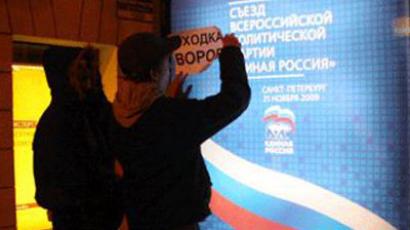Russian human rights activist and opposition politician Valeria Novodvorskaya dies

Russian human rights activist and opposition politician Valeria Novodvorskaya has died after being hospitalized in the intensive care unit of a Moscow hospital, city authorities have confirmed. The 64-year-old suffered from a chronic disease.
She was admitted to the hospital in the early morning hours and
reportedly died from "intensive toxic shock." The time
and place of her burial is to be decided by her family.
Novodvorskaya was born in 1950 in Belarus.
She was part of the opposition movement against Russia's various
leaders and administrations for most of her life.
At the age of 19, Novodvorskaya distributed leaflets containing
her poems at the State Kremlin Palace (which was then the Kremlin
Palace of Congresses), criticizing the ruling communist party and
its introduction of Soviet troops into Czechoslovakia.
She was arrested by the KGB in 1970, which claimed she was mentally ill. She was then forced to undergo medical treatment for two years.
When freed, Novodvorskaya continued her anti-communist activity.
She participated in the dissident activity of samizdat – the
underground copying and distribution of censored publications in
the USSR.
Novodvorskaya welcomed the fall of the Soviet Union and supported
the first Russian president, Boris Yeltsin. But she continued
being an opposition politician, and in the 1990s stood behind the
radical liberal Democratic Union party, formed in the late 1980s.
For decades, Valeria Novodvorskaya was among the most renowned
public figures in Russia, known for her strong opinions on a
number of political matters. She was against the introduction of
troops to Chechnya and took Georgia's side in the South Ossetia
war in August 2008.
As an independent journalist, Novodvorskaya wrote for various
media outlets, working on articles up until her final days. Her
last publication was in New Times magazine, dated July 12.













